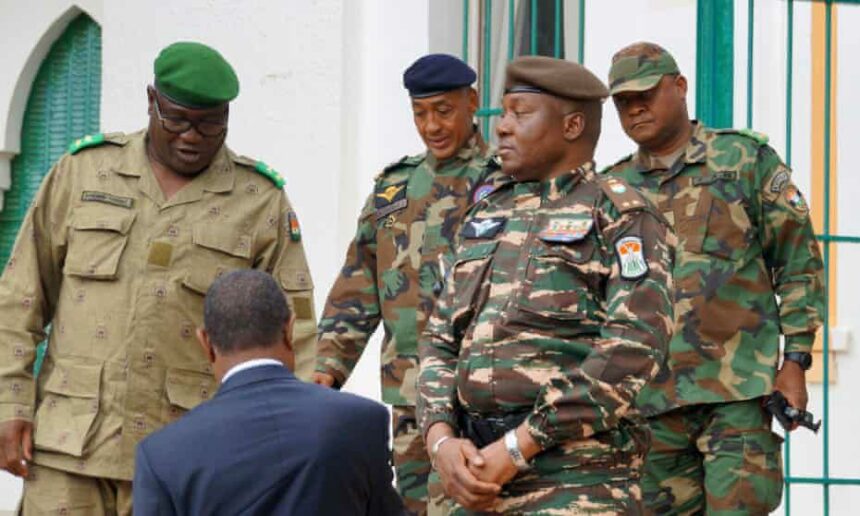Niger’s military leader, Abdourahamane Tchiani, was officially sworn in as transitional president on Wednesday, marking a significant step in the country’s shift away from democratic governance. Under a newly implemented transition charter, Tchiani will lead the nation for a five-year period, replacing the existing constitution and cementing military rule.
As part of this transition, Tchiani was promoted to the rank of army general, the highest military position, and enacted a decree dissolving all political parties, effectively eliminating opposition. This move solidifies his grip on power, which began in June 2023, when he led a coup d’état that ousted the democratically elected government of President Mohamed Bazoum. The coup faced immediate condemnation from ECOWAS (Economic Community of West African States) and the international community, who urged a swift return to civilian rule.
The newly approved transition charter was finalized at a national conference in Niamey, Niger’s capital, and formally implemented on Wednesday. According to government secretary general Mahamane Roufai, the transition period is designed to be “flexible” but will span at least five years. If fully adhered to, Tchiani will have been in power for nearly seven years by the time the transition ends in 2030. This extended timeline mirrors the strategies of other military-led governments in West Africa, including Mali, Guinea, and Burkina Faso, where juntas have delayed or restructured democratic transitions to retain control.
Shifting Alliances and Foreign Military Presence
One of the most notable provisions in the transition charter is the requirement for a national referendum before allowing foreign military bases in Niger. However, the document grants the president authority to bypass this requirement in emergency situations, giving Tchiani significant unilateral power over foreign military engagements.
Since the coup, Niger has significantly restructured its foreign alliances, moving away from its traditional partnerships with France and the United States and strengthening ties with Russia. This shift came after the junta expelled French and U.S. forces, which had long assisted Niger in counterterrorism operations against jihadist insurgents in the Sahel region. In place of Western forces, the Nigerien government has embraced Russian military support, including the Wagner Group, a private military contractor with a growing presence across Africa.
Tensions with ECOWAS and Regional Implications
Following the coup, Niger’s junta initially proposed a three-year transition period, a timeline that was rejected by ECOWAS, which considered it a stalling tactic. In response, the regional bloc threatened military intervention and imposed harsh economic sanctions aimed at pressuring the junta into relinquishing power. However, instead of complying, Niger aligned itself with fellow junta-led states Mali and Burkina Faso, and together, they withdrew from ECOWAS in early 2024.
The economic consequences of this decision have been severe, with rising food prices, supply chain disruptions, and increased difficulties in securing foreign aid. Despite these challenges, Niger’s leadership has maintained a defiant stance, arguing that the break from ECOWAS allows for greater sovereignty and freedom from Western influence.
Internal Challenges and Criticism
While Tchiani’s government claims that military rule is necessary to stabilize Niger and combat terrorism, critics argue that the junta has done little to improve security. Jihadist violence, particularly from extremist groups linked to ISIS and al-Qaeda, continues to pose a major threat, particularly in the Tillabéri and Diffa regions.
Additionally, human rights organizations have reported a crackdown on civil liberties, including arrests of journalists, political activists, and dissidents. Media censorship has increased, and public demonstrations have been met with forceful suppression.
Despite these concerns, Tchiani and his administration maintain that the military-led government is the only viable path forward for Niger. With opposition silenced, elections postponed, and foreign alliances shifting, the country appears to be firmly under military control for the foreseeable future.









